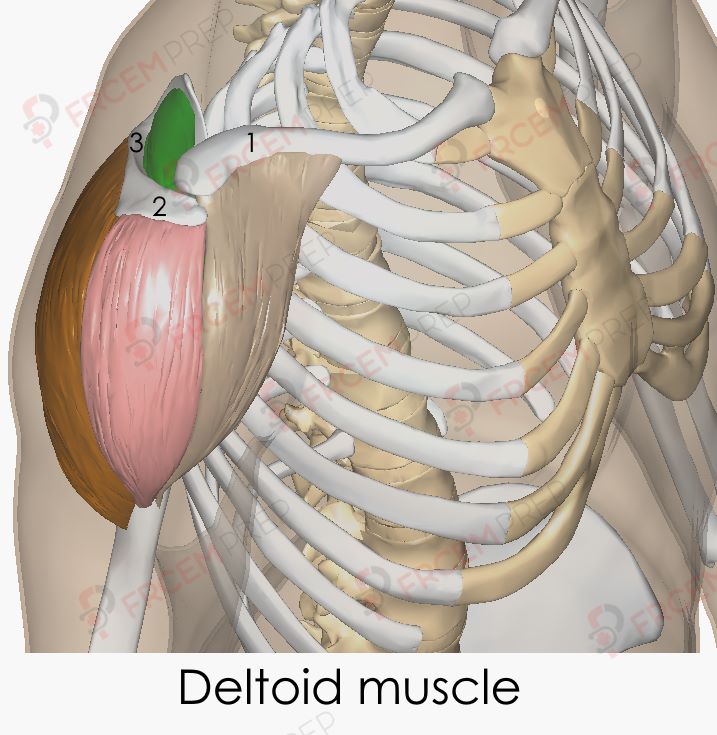Actions and innervation of Deltoid.
Curriculum
Knowledge of origins and insertions NOT required.
Knowledge of the muscles which exert group effects (eg abduction) at the shoulder joint and the means of clinical testing: an ability to describe shoulder movements according to muscle actions and an appreciation of the role of humeral & scapular rotation.
| Origin | Lateral 3rd of Clavicle, Acromion, Lateral 3rd of scapula |
| Insertion | Deltoid tuberocity of the Humerus (Just below Infraraspinatus) |
| Nerve supply | Axillary nerve |
| Actions | Shoulder abduction, flexion and extension |
Though the curriculum says origin and insertion not required, we’ve included them as that knowledge will help you understand the movements better based on muscle orientation.

Deltoid muscle Origin and Insertions – Image modified from BodyParts3D, © The Database Center for Life Science licensed under CC Attribution-Share Alike 2.1 Japan
It resembles the Greek letter Delta “Δ” . Has a broad origin but a pointed insertion.
Clavicular origin is seen in golden color, Acromial origin in pink and Scapular spine origin in brown.
It covers the shoulder joint on 3 sides protecting it.
1st origin fibers help flex the shoulder.
2nd origin fibers abduct the shoulder.
3rd origin fibers extend the shoulder.
Teres minor is used as a reference point to mark the transition of Axillary artery into Brachial artery.
Clinical pearl.
Testing the Deltoid
The first 15 degrees of abduction is done by the Supraspinatus (Supplied by Suprascapular Nerve). If there is a problem initiating Abduction, it indicates a problem with the Supraspinatus muscle or it’s nerve the Suprascapular Nerve.
Deltoid takes over abduction after 15 degrees. Keep the arm abducted at 15 degrees, make the patient then abduct against resistance. You can feel muscle contraction near Acromion if it’s contracting properly.
Loss of function can occur with Axillary Nerve damage. It runs in the posterior aspect of axilla, loops around the surgical neck of Humerus. Nerve can get damaged in Surgical neck of femur fractures or dislocations of shoulder joint or with incorrect use of crutches or with improper Deltoid IM injections.